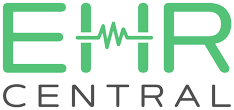Women's Health: Empowering Through Knowledge
In a world where information is power, empowering women with knowledge about their health is paramount. Women’s health encompasses a broad spectrum of physical, mental, and emotional well-being, and understanding it not only enhances individual lives but also strengthens

communities and societies. This blog aims to delve into various aspects of women’s health, providing valuable insights and resources to empower women to take charge of their well-being.
1. Understanding the Female Body:
Exploring the anatomy and physiology of the female body lays the foundation for understanding women’s health. From reproductive health to hormonal fluctuations, knowing how the body works is essential for making informed decisions about health care.
2. Navigating Reproductive Health:
Reproductive health encompasses a range of issues, including menstrual health, contraception, fertility, pregnancy, and menopause. Each stage of a woman’s reproductive journey comes with its own set of challenges and considerations, and being informed about these topics empowers women to make choices that align with their needs and desires.
3. Mental Health Matters:
Mental health is an integral component of overall well-being, yet it is often overlooked or stigmatized. Women may face unique mental health challenges, such as postpartum depression, hormonal imbalances, or societal pressures related to body image and gender roles. By raising awareness and providing support, we can promote mental wellness and resilience among women.
How EHRCentral enhances your healthcare practice?
4. Preventive Care and Screening:
Regular check-ups, screenings, and preventive measures are crucial for maintaining good health and catching potential issues early. From breast cancer screenings to cervical cancer screenings and vaccinations, staying up to date
with preventive care can significantly reduce the risk of serious health complications.
5. Lifestyle Choices and Wellness:
Lifestyle factors such as diet, exercise, sleep, and stress management play a significant role in women’s health. By adopting healthy habits and making positive lifestyle choices, women can enhance their overall well-being and reduce the risk of chronic diseases.
6. Advocating for Women’s Health Rights:
Access to comprehensive health care, reproductive rights, and gender equality are essential components of women’s health empowerment. Advocating for policies and initiatives that prioritize women’s health rights ensures that all women have the resources and support they need to thrive.
Conclusion:
Empowering women through knowledge is not just about providing information; it’s about fostering a culture of autonomy, agency, and advocacy. By equipping women with the knowledge and resources they need to make informed decisions about their health, we can create healthier, happier, and more empowered communities. Let’s continue to prioritize women’s health and work towards a future where every woman can live her best life.





